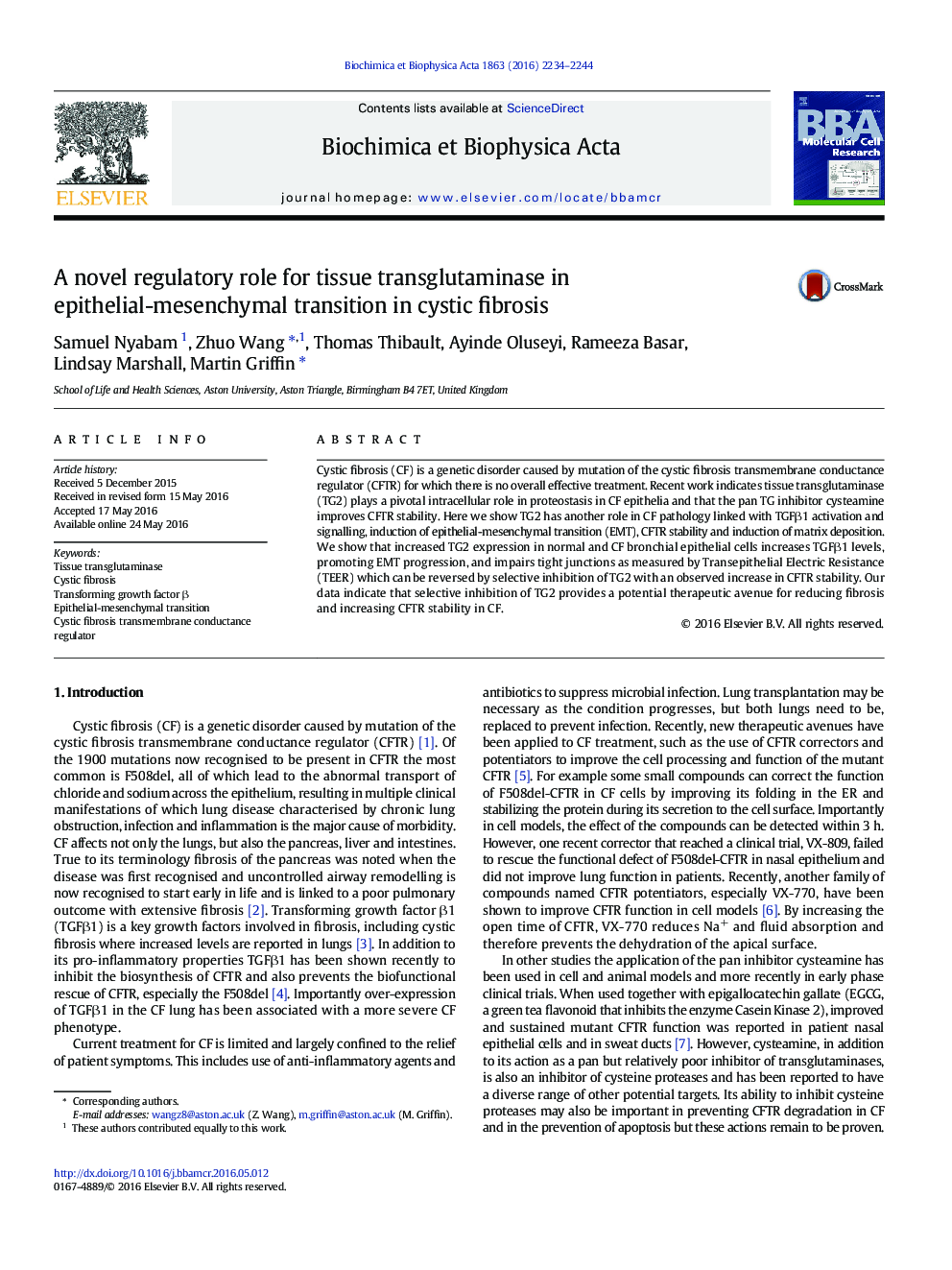| Article ID | Journal | Published Year | Pages | File Type |
|---|---|---|---|---|
| 1950418 | Biochimica et Biophysica Acta (BBA) - Molecular Cell Research | 2016 | 11 Pages |
•Increased TG2 expression in CF epithelia increases TGFβ1 levels.•Increased TGFβ1 and TG2 leads to Epithelial Mesenchymal Transition (EMT).•EMT leads to reduced CFTR stability and increased matrix deposition.•Inhibition of TG2 helps restore CFTR stability and leads to reversal of EMT.
Cystic fibrosis (CF) is a genetic disorder caused by mutation of the cystic fibrosis transmembrane conductance regulator (CFTR) for which there is no overall effective treatment. Recent work indicates tissue transglutaminase (TG2) plays a pivotal intracellular role in proteostasis in CF epithelia and that the pan TG inhibitor cysteamine improves CFTR stability. Here we show TG2 has another role in CF pathology linked with TGFβ1 activation and signalling, induction of epithelial-mesenchymal transition (EMT), CFTR stability and induction of matrix deposition. We show that increased TG2 expression in normal and CF bronchial epithelial cells increases TGFβ1 levels, promoting EMT progression, and impairs tight junctions as measured by Transepithelial Electric Resistance (TEER) which can be reversed by selective inhibition of TG2 with an observed increase in CFTR stability. Our data indicate that selective inhibition of TG2 provides a potential therapeutic avenue for reducing fibrosis and increasing CFTR stability in CF.
Graphical abstractFigure optionsDownload full-size imageDownload high-quality image (118 K)Download as PowerPoint slide
